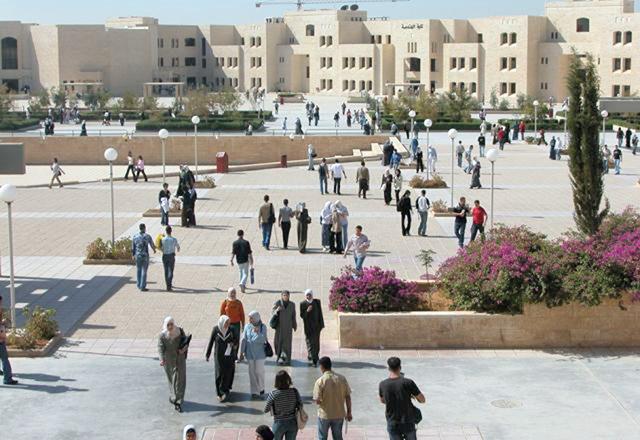You are here
Region’s unemployment woes come under microscope at IMF meeting
By JT - Nov 04,2019 - Last updated at Nov 04,2019
WASHINGTON, DC — As 30 per cent of 18- to 24-year-olds are jobless in the Middle East and North Africa, marking the highest unemployment rate in the world, experts have underlined the role of the private sector and fostering entrepreneurship to address the challenge of unemployment.
The experts also said that improving access to financing and boosting effective women’s empowerment are essential steps to addressing the issue of unemployment.
Unemployment is a cause of concern for 89 per cent of young Arabs, according to findings from the 2019 ASDA’A BCW Arab Youth Survey, unveiled at an event recently organised by the International Monetary Fund (IMF) during the IMF and World Bank Annual Meetings in Washington, DC.
Speaking at the event, Jihad Azour, IMF director for the Middle East and Central Asia, said that 60 per cent of the region’s population is under 30 years old, and the level of unemployment is above 30 per cent.
“In the next five to seven years, there is a need for creating 25 to 27 million new jobs in the region,” he said.
“It is impossible to talk about growth and macroeconomic stability without tackling the issue of jobs and unemployment,” said Azour, stressing that the issue should be among the top priorities of governments, international organisations and the private sector.
Azour stressed the need for enhancing access to finance, which he said was “surprising low in the region for SMEs [small- and medium-sized enterprises] and populations compared to the rest of the world”.
He added that achieving macroeconomic stability was also of “high importance” so as not to “hijack the future of the youth by increasing debt beyond what states can afford”.
Azour underlined the significance of intensified efforts to unleash private sector energy, also stressing the important role of education in providing youth with skills that help them penetrate the labour market.
“We want to allocate resources where resources are more effective and productive... We want resources to be used effectively to make a difference. It is not about increasing spending, it is about better management,” he said.
Sunil John, founder of ASDA’A BCW, and president-Middle East of BCW, said youth in the region “have hopes and aspirations”, and there is a need for continued reforms and efforts to help them realise these aspirations.
“There are also challenges, as governments are also facing tough times and they need to go ahead with the required reforms,” said John.
Presenting the survey findings to the event’s panel, John said: “As a developing region with some of the fastest-growing economies in the world, Arab youth cannot afford to be left behind. Now, more than ever, the region’s young people require the support of their governments if they are to realise their potential and take up the productive, fulfilling and rewarding careers which are needed to drive the economies of the region to greater heights.”
Addressing the audience at the event, John said: “We are privileged to present our research at the prestigious IMF and World Bank Annual Meetings and to share actionable insights with international governments and other decision-makers. The Arab Youth Survey is for a platform for dialogue and I hope that the dialogue we spark today can be the basis of policies and actions that can help change the future for Arab youth.”
The 11th Arab Youth Survey indicated that the rising cost of living and unemployment are the top two concerns among Arab youth, but it also showed a divide in opportunities between young Arabs living in Gulf states and their peers elsewhere, especially when it comes to expectations of their governments to address issues that matter to young people.
It showed that while 97 per cent of youth in the UAE are confident that their national government can battle rising unemployment, 80 per cent of youth in Iraq have no confidence in their government to do the same.
Young Arabs in Gulf states also look to their governments as a source of employment. Seven out of 10 (69 per cent) youth in the GCC want to work in the public sector — while those elsewhere are more amenable to private-sector jobs, with just four out of 10 youth in North Africa (40 per cent) and the Levant (39 per cent) preferring government jobs.
Related Articles
AMMAN — The majority of young Arabs say religion plays too large a role in the Middle East and believe that religious institutions should be
AMMAN — Optimism has plunged among young Arabs across much of the region with a widening divide over hopes for the future between those livi
AMMAN — Jordanian youth are more optimistic about their future, according to a recent survey.The results of 13th annual ASDA’A BCW Arab Yout
















